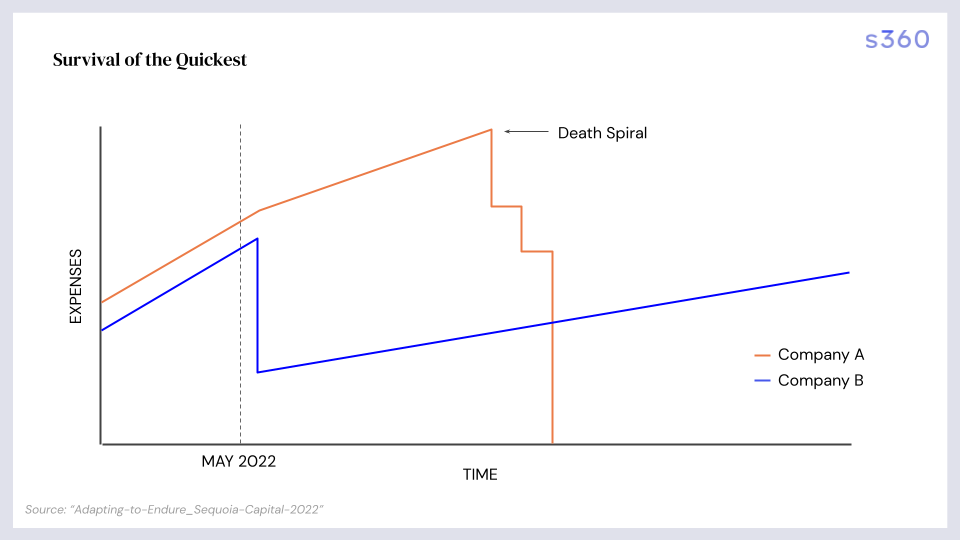Most start-up and scale-up companies have one thing in common: they fail. However, those who survive and scale with success share several traits.
Firstly, they work incredibly hard and move extraordinarily fast. Once they scale, successful start-ups maintain their momentum and respond quickly to market changes.
But, that said, operating and building a business in the real world is complex.
A year ago, start-ups and scale-ups faced a harsh reality.
"Capital is no longer free. It's expensive," Sequoia informed their founders. Many found themselves on the brink of a potential death spiral.
To adapt and endure, they had to cut expenses. Naturally, many considered marketing investments first.

Airbnb's successful navigation through similar challenges was shared in a widely-circulated presentation from June 2022. Read more.
At the time, it was praised for providing a clear overview of the landscape, future expectations, and actionable insights. With that, they were able to react quickly and adapt to the changing surroundings.
But what if you're not Airbnb? Most companies aren't. What if you're an ecommerce business?
Ecommerce customers tend to be less loyal and more price-sensitive. Companies must invest in market presence to protect revenue volumes. Cutting all marketing or shifting solely to branding isn't an option.
Since then, many ecommerce companies seeking profitable growth have adopted key tactics like (and other):
One year later, we also see many start-ups and scale-ups adopting the same tactics. No matter how you define your company, embracing the "profitable growth" mindset can give you a competitive edge.
And luckily, many of the start and scale-ups did endure.

Johan Peen
COO
[email protected]
